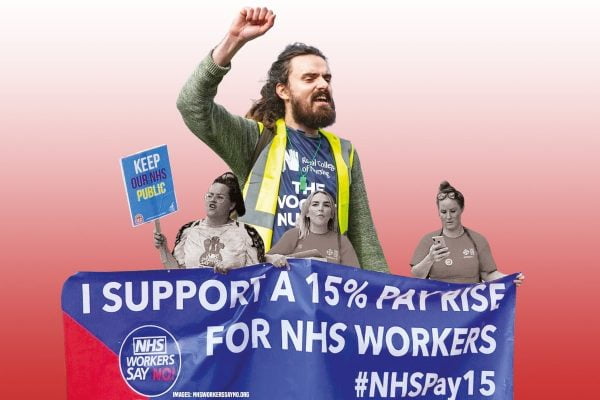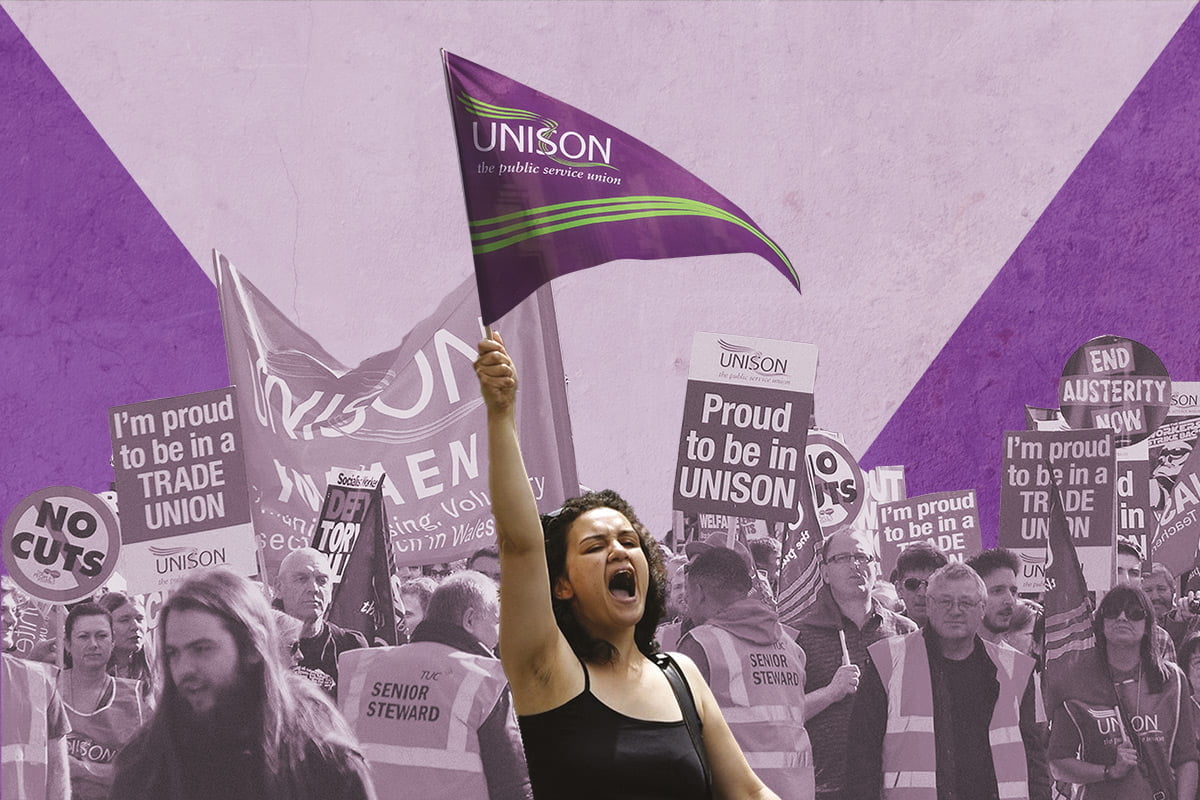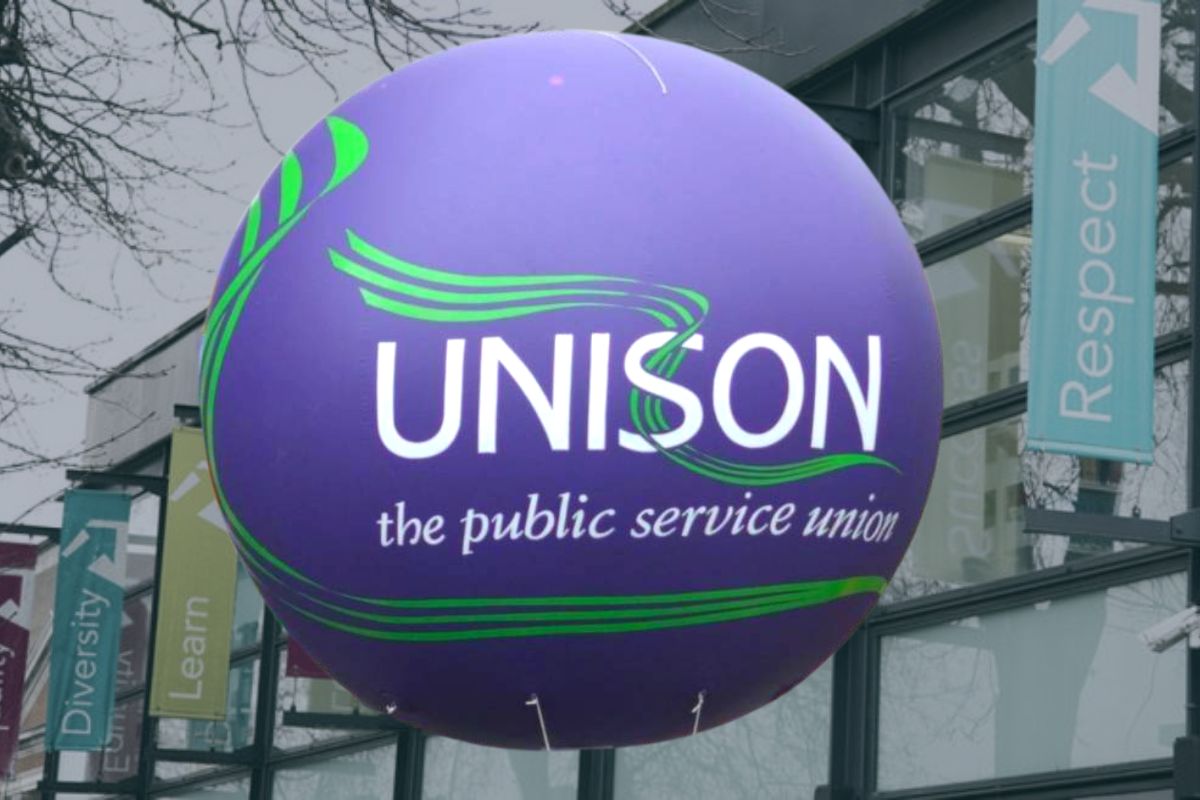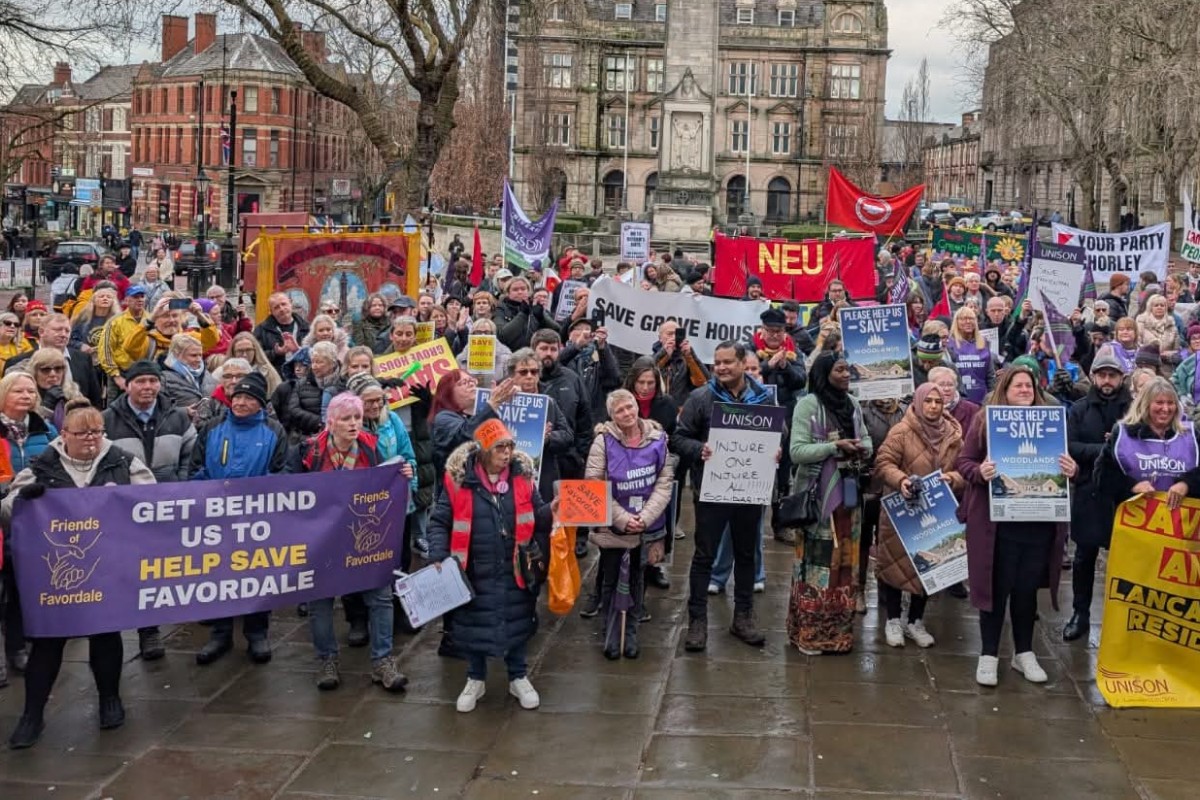From 23 May, hundreds of thousands of local government Unison members in England, Wales, and the North of Ireland are being balloted over whether to accept or reject the employers’ offer of a £1,924 flat rate pay increase.
Importantly, the union is calling on members to reject this offer.
With other unions in local government also likely to vote for strike action, and other public sector workers – such as teachers, civil servants, and junior doctors – all still in dispute, the potential exists for a mass united strike movement in councils and across the public sector.
Unison members can play an important part in this struggle, provided our union mobilises activists to get the vote out.
We say: Vote to strike! Unite and fight! Mobilise to kick out the Tories and end austerity!
Rising militancy
In something of a departure from previous pay campaigns, Unison’s National Joint Council (NJC) committee agreed not to begin with an indicative ballot, but to instead move straight to a strike ballot.
This might seem surprising, given recent history. Last year’s pay campaign, for example, dragged on for months, losing momentum and eventually running into the sand following a strike ballot conducted over the winter holidays.
The NJC’s decision, however, is symptomatic of a number of important factors.
For one thing, and perhaps most significantly, the temperature in the trade union movement is rising. Wave after wave of industrial action has been hitting the employers.
This is happening not just across the public sector, but increasingly in the private sector also, where Unite in particular has won significant victories.
Cost of living
The cost-of-living crisis affects all of us. Figures from consumer group Which? suggest that average food inflation is now topping 17%. The prices of some ‘value’ items in supermarkets are going up by 25% or even 50%.
It’s probable that the Local Government Association, the Welsh Government, and the employers in the North of Ireland thought that a flat offer of £1,924 across the board would be enough to satisfy council workers.
For a local authority worker on 37 hours a week, this amounts to an extra £1 an hour – incidentally, the same figure the union accepted last year.

Such a pay rise falls far short of inflation, however. And with lower-paid workers suffering the most from higher prices, spending a greater proportion of their income on food and fuel, the situation is even worse than it appears at first glance.
Unite and GMB, the other unions representing workers in local government, have already held indicative ballots that have soundly rejected this offer. And many of these council workers are based in schools, where teachers are also waging a determined struggle.
This mood almost certainly exists amongst Unison members as well, presenting the opportunity for a united fight across local authorities. There is everything to play for.
Fomenting division
The recent pay ballots in the NHS show what is at stake. There, RCN members decisively rejected a below-inflation pay offer, while Unison accepted it.
Subsequently, reports have surfaced of a significant layer of our members in health joining the RCN or Unite in protest at Unison’s position.

Similarly, Unison members in schools have reportedly joined the NEU so that they can unite with teachers on their picket lines. This has led to Unison lodging a divisive and distracting complaint with the TUC against the NEU, who they accuse of ‘poaching’ members.
All of these antics by the Unison bureaucracy have played right into the hands of the employers, by fomenting division in healthcare and education workplaces – precisely at a time when workers require maximum unity against the bosses and the Tories.
Under pressure
The Unison leadership in local government, in particular the NJC Committee and the full-time officials, have therefore come to a crucial juncture.
A union leadership that is unable to win a successful strike ballot, let alone win reforms, has nothing to offer workers at a time when they are looking for action to defend their living standards.
This is especially the case when there are other unions in the same sector that are proving that they can win ballots, such as Unite.
The employers will not feel any pressure to deal with an organisation they see as toothless. Nor will internal pressure let up for the union bureaucracy.
The union leaders are therefore caught between a rock and a hard place: between intransigent employers looking to impose cuts upon workers, and a membership that cannot accept any more attacks on their pay and conditions.
Members are clearly becoming restless towards the bankrupt status quo. In turn, a growing layer is looking to fight for real change within the union itself.
As such, the bureaucracy is being driven into a corner of its own making. Either they must actually organise a struggle; or they will be forced aside and replaced by fighting leaders who will.
This explains the sudden – but welcome – rush towards an outright strike ballot in the local government sector of the union.
Mobilisation and militancy
The ballot closes in England and Wales on 4 July, a few short weeks after the announcement of the results of the latest Unison NEC elections, and after the close of this year’s Unison conference season.
The upcoming Unison local government conference should therefore be used as a key platform for getting the vote out, and to make the case for a real battle.
Unison needs a fighting socialist programme to address the problems facing our members.
NEC elections are underway in Unison as an explosive strike wave rolls out nationally.
Read our latest analysis on the struggle for a fighting trade union here 👇👇👇https://t.co/WaHiBeH6OS
— UNISON Marxists (@UnisonMarxists) January 24, 2023
We need the reversal of all cuts and privatisation in public services. We need an end to low pay, and a guarantee that our wages won’t be undermined by inflation. We need a sliding scale of wages, so that when prices go up, our wages rise by at least as much.
There has been a huge increase in industrial action over the last year, with one sector after another taking action over pay and conditions. Notably, we have seen the example of RCN members rejecting the rotten deal that their leaders brokered with NHS employers.
This illustrates a break with the recent past, reflecting an increasingly militant shift in the consciousness of workers. In the teeth of capitalism’s crises, workers are coming to see that if you want change, then you have to fight for it.
Fighting leadership

It is vital that we link our struggles together, and strive for the maximum unity. There is clearly the potential for a mass campaign of coordinated action across the public sector, with teachers, civil servants, NHS staff, and other council workers all mobilising.
Striking NEU members in schools are the natural allies of local authority workers, not our rivals. The same is true for nurses in the RCN and PCS members in the civil service.
Given its size and weight in the trade union movement, Unison has a responsibility to play a leading role in this. With united, militant action, we could stop the Tories and their austerity agenda in its tracks.
Unison could be a powerful weapon in the hands of its members, and for the whole labour movement, provided it has a fighting leadership, armed with a clear class perspective and a bold socialist programme.
This is what the Marxists in Unison are attempting to build. We invite you to join us in this task.






